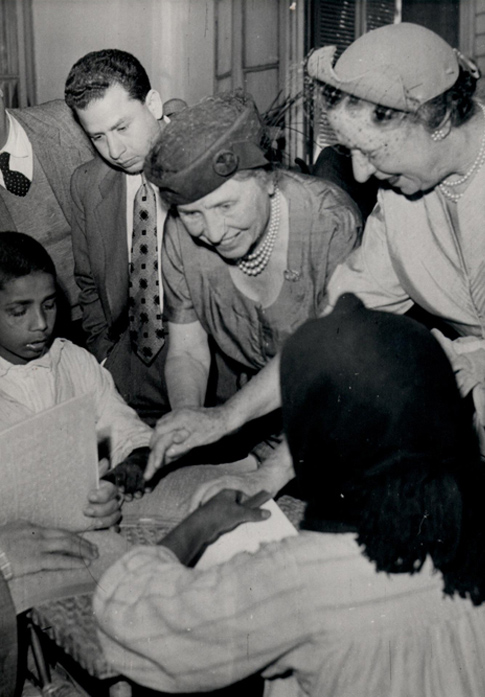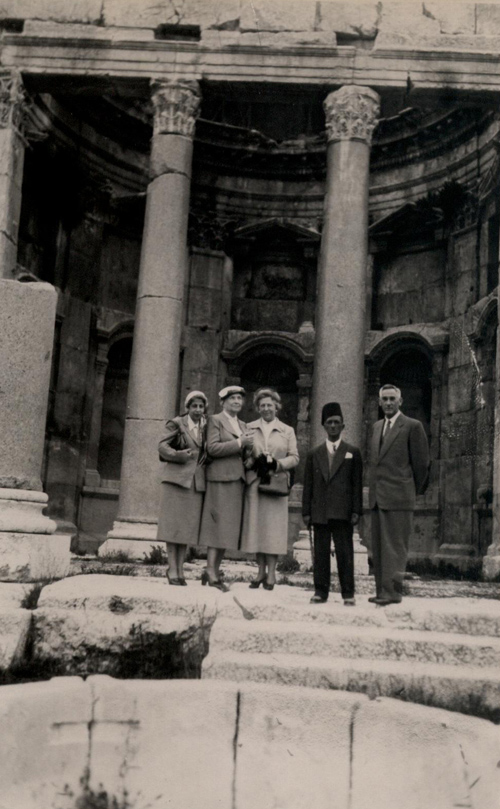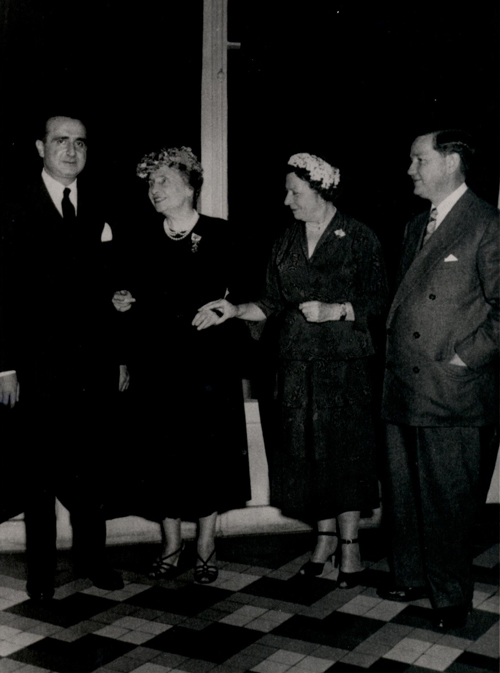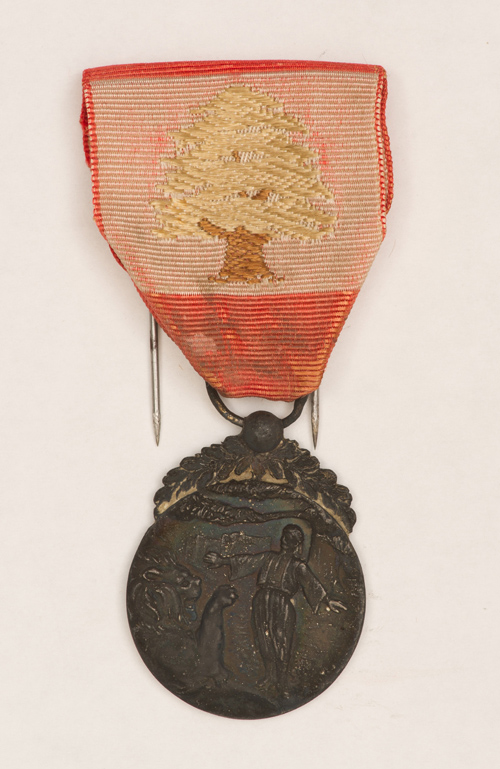This is part 2 of a 5-part series. Read the first entry, Egypt, here.
Helen and Polly's next port of call was Lebanon. Here is how she described their visit in late April and early May 1952 to Georges Raverat, the director of the AFOB in Paris:
"At Beirut I did my best to arouse the Lebanese people and their Government to a sense of responsibility in rehabilitating the blind. The School for the Armenian Blind under the management of Swiss Friends, ably directed by Mr. Karl Meyer, is excellent, but it receives little or no aid from the Government, and lacks sufficient educational and technical apparatus. I talked to a large Armenian audience and begged them to take a larger share in caring for their own blind. I said they should stand in the place of father and mother to the little ones whose parents had been massacred. The response to my appeal was amazing and touching, and I hope that the School may soon reach higher goals of accomplishment. I implored the Lebanese minister Governor to do what he could to establish more schools for the blind and to aid the one at Beirut by securing the passage of a law that would require the Government and the armed forces to buy the brooms, mops and other articles produced at the workshop for the adult blind. He seemed deeply interested, but you know, Georges, the dilatoriness of governments in the Near East. I shall remember always the warm-hearted hospitality with which we were entertained or the stimulating atmosphere in the city so progressive, so full of houses of learning and exercising such potent influence for a higher civilization far and wide."
Continued reading of archival documents suggests she made a far greater impact than her letter to Raverat reveals. In 1953, Helen was nominated for a Nobel Peace Prize (the award ultimately went to George Catlett Marshall). Testimonials from her 1952 visit to Lebanon reflect the enormous effect she had on all those who saw and met her. Two testimonials stand out. The first was recounted by a Miss Scott, a staff member of the British Syrian-Lebanese Mission School for the Blind in Beirut (a school for boys). In it Scott relates an account by the "Master of the Blind School":
"I may say that [he] has found, as he goes about the city, very many people who still speak of that visit. It seems that they had not thought before of what could be done to help handicapped people to overcome their limitations. We believe that the establishment of a Lebanese society for the Blind and the interest of the Lebanese Government in such work has been largely due to Miss Keller's visit."
Similarly Karl Meyer, the director of the Armenian School for the Blind, who was assigned to accompany Helen during her time in Lebanon wrote the following:
"[Helen's speeches] caused many people to awaken and we can see already now the fruits of that most strenuous tour of Helen Keller. For instance: in Lebanon an awakening of Arabic circles, the formation of a committee for the blind and the desire to build a school for the Arabic Blind that did not exist so far...
In the streets one can notice that there are more people than before who are willing to help the blind crossing the street or who warn them of possible dangers on the road...
An adult blind told me that she can notice that since the visit of Helen Keller people are much kinder and more polite in the street-cars also, being helpful in getting up and down, and they even offer now frequently their seat to them, a thing that was quite impossible before!
But not only the Blind, but also the seeing people, yes even the intellectual class, both young ones and adults benefited greatly... [the President of the American University wrote] that about 2000 persons, Professors and students went to the address of Helen Keller, and that they have been deeply impressed by that unique personality."
In 1957 the Lebanon School for the Blind and the Deaf was founded by the First Lady of Lebanon, Zalpha Camille Chamoun. An invitation in July from a friend at the Beirut college of Women (now the Lebanese American University) to attend the inauguration of the school for children with visual impairments indicates how the memory of her visit was still strong five years after her initial visit.
"I was wondering whether transportation can be paid, by the Foundation for the Blind, or some other organization. [Chamoun informed Dabaghie that they lacked the funds] For there is the need of you coming. And I am sure that would not be a strenuous trip, if you do not want any other official functions, but the inauguration. I am writing you this information, knowing the considerable influence you had on your first visit, and this school is a direct out growth of it. The time is ripe for expansion. Last spring the Blind School had the first public activity, in which The College offered them the auditorium for two successful performances. A brilliant blind boy is going for a year of study in the United States, to return to work with our Blind. Aided by Mme Chamoun and public subscriptions. So you can see how important your personal relationship has been with the Blind & Handicapped in the Near East."
Helen's legacy continues to this day—a quotation by her graces the home page of the modern day Lebanese School for the Blind & the Deaf.



